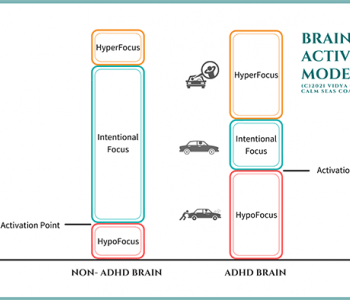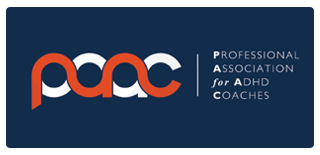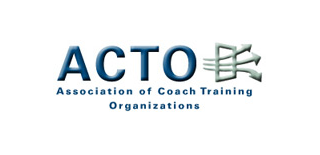The Many Faces of ADHD: Parenting a Child with ADHD (i)
ADHD Education
A concerned parent’s first response to the possibility that her child may have ADHD (attention-deficit/hyperactivity disorder) is often, “What can I do about it?” Although life with your child may be challenging, children with ADHD can and do succeed. As a parent, you can help create home and school environments that help your child do well. The earlier you address your child’s challenges, the more likely you are to prevent school and social situations that could lead to bigger problems later on.
Early intervention holds the key to your child’s success. Here are some ways to get started:
- Get a proper evaluation. Thisisn’t quickor simple. Be sure your child has complete medical,educational, and psychological evaluations. That way you can also check to see if you child has conditions that either look like or often go with ADHD.
- Don’t blame yourself. ADHD is due to problems in certain areas of the brain and in mostcases it runs in families. Although the home environment can affect its symptoms, ADHD is not caused by poor parenting or a chaotic home environment.
- Learn all you can about ADHD. It is up to you to be a smart consumer and learn to distinguishaccurate information frominaccurate information. Be wary of ads claiming to cure ADHD.Currently, there is no cure, and if it sounds too good to be true, it probably is!
Ensuring Success at School
- Learn all you can about educational rights. The more you know about your child’s rightsunder two federal education laws – the Individuals with Disabilities Education Act (IDEA) and Section 504 of the Rehabilitation Act – the better advocate you’ll be.
- Be an effective case manager. If you are seeking or managing school accommodations, keepa record of everything. This includes copies of all medical and educational evaluations and documents from any meetings concerning your child.
- Work with your child's school. School meetings to discuss accommodations should beattended by the principal (or a representative), a special educator and a teacher that knows your child. You have the right to ask that others who understand ADHD or your child’s special needs, such as a doctor or the school guidance counselor, be allowed to participate too. A thorough examination of your child’s needs is the first step towards an effective school intervention plan.
Ensuring Success at Home
- Learn the tools of successful behavior management. Enroll in a parent training course thatcan teach you strategies to change troubling behaviors and improve your relationship with your child.
- Work together to support your child. All adults who care for your child–parents,grandparents, babysitters – should understand how best to manage your child’s problem behaviors.
- Join a support group. Parent groups can be a source for additional information, as well assupport.
- Seek professional help. If you are feeling depressed, frustrated and exhausted, seek help.When you feel less stressed your child benefits.
- Find out if you have ADHD. Many parents of children with ADHD often discover that theyhave it too. Parents with ADHD may need the same types of evaluation and treatment as their children. ADHD can make it harder to raise a child, so be sure to get the help you need.
- Set clear boundaries and be consistent. Children with ADHD need to know exactly whatothers expect from them. They do not perform well when things are unclear and directions aren’t specific – they can’t “read between the lines”!
- Learn to enforce effective discipline. Parents should learn to be proactive–not reactive.Instead of focusing on bad behavior, use positive behavior intervention techniques that teach and reward good behavior. Respond to bad behavior calmly but with specific steps that your child can understand. Do not simply punish your child without explaining why. Make sure your child knows about these consequences in advance of any problems.
- Help your child learn from mistakes. Children with ADHD have difficulty making theconnection between their behaviors and the consequences. Parents can help their child make these connections and learn from them.
Boost your child’s confidence
- “I love you no matter what!” There will be days when you may not believe this yourself, buttell your child often that you love her. It’s on those most challenging days that it helps to acknowledge the difficulties your child faces on a daily basis. Let your child know that you will get through the smooth and rough times together.
- Help your child with social skills. It can be hard for kids with ADHD to make and keep friends.They may be rejected by other children for being hyperactive, impulsive or aggressive. Parent training courses can teach you how to help your child to make friends and work cooperatively with others.
- Identify your child's strengths. Many children with ADHD may have strengths in areas like art,athletics, computers or mechanics. Encourage these strengths so that your child can feel proud and fulfilled. Do not use or withhold these activities as part of a behavior modification plan.
- Set aside a daily "special time" for your child. Constant criticism can erode a child’s self-esteem. A “special time,” whether it’s an outing, playing games, or just time spent enjoying each other, can build your child's self confidence.
------
Sponsored by:
- ACO
- ADDA
- ADDitude
- CHADD
- NationalResourceCenteron AD|HD
Adapted from What We Know # 2: Parenting a Child with ADHD, NationalResourceCenteron ADHD: A Program ofCHADD (NRC). The NRC is supported through Cooperative Agreement Number CDC-RFA-DD13-1302 from the Centers forDisease Control and Prevention (CDC). The contents are solely the responsibility of the authors and do not necessarily represent the official views of CDC.












